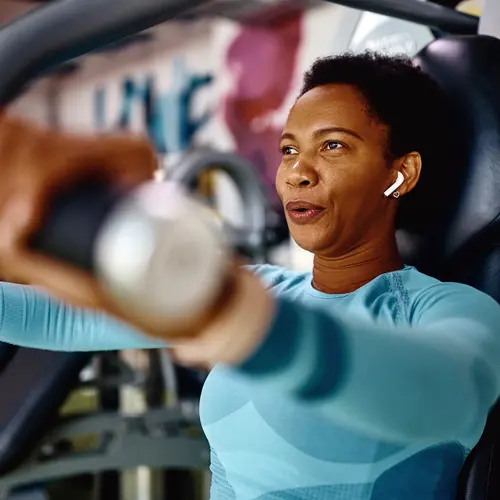Running a marathon requires careful training and preparation. Once race day has arrived, you should feel comfortable and capable of running the distance. The final step in your preparation is figuring out what to bring to the marathon on race day.
Hydration
One of the most important things to consider during a marathon is hydration. Lots of marathons offer fuel stations where you can get a drink or an energy gel. Research the event beforehand and figure out how often these are set up around the route. Some races have them every mile while others are more spread out. If there isn’t enough, you might need to bring your own water.
You can also bring your own sports drink if you regularly drink one during training. It’s a good idea to drink a glass of water or sports drink the night before and another in the morning before the race starts. This will help you hydrate and give your body time to absorb it before you start running.
Carbs and Snacks
Your body uses stored energy called glycogen during running. If you deplete that storage, you can experience what runners call “hitting the wall.” You start to feel tired, your muscles and legs feel heavy, and it’s hard to keep going. Taking in small amounts of calories as you run can help you avoid that wall.
Test out what kind and how much fuel your body needs during your training. Energy gels and chews are the easiest to carry, but you might need something salty like pretzels if you sweat a lot and lose salt.
It’s also a good idea to eat a light carbohydrate meal before the race. If you still need extra calories, eat a snack 30 minutes before the race begins.
Petroleum Jelly
Running long distances in sweaty clothes can cause chafing. When you train, you’ll learn the areas that tend to chafe the most. This is often your nipples, thighs, and armpits. Bring petroleum jelly to coat those areas before you run.
Sunscreen
The day will get hotter as the sun comes out. Make sure to protect your skin from sunburn with adequate sunscreen. Remember, you can get a sunburn even when it’s cloudy. Apply sunscreen generously before the race starts.
Comfortable Clothing
Never try anything new on race day, including clothing. Wear comfortable shoes, shorts, socks, shirts, and race accessories like a vest that you’ve already broken in. New shoes and clothing will cause blisters or worsened chafing. You should know how your accessories feel on your body and be comfortable running in them.
Also make sure to dress for the weather without overdressing. You might need an extra lightweight layer if it’s cool. The route should have a place to discard extra clothing that you can pick up later.
Smartphone or Smartwatch
Use a smartphone or watch that can easily measure your pace, play music, and track your location. Lots of apps have an audio feature that will narrate your pace over your music in intervals. This can help you make sure you’re on par with your regular training pace. Some people like using a smartwatch because it’s one less thing to carry.
Sweatband and Sunglasses
If the sun gives you sore eyes or headaches, wear sunglasses. If you sweat a lot, you might like a sweatband that will keep sweat out of your eyes and off your sunglasses.
Cash
Hydration stations are free, as these supplies are part of your race fee, but carry some cash on hand just in case. You can use this to buy a snack and drink at the end of the race or to use in an emergency.
Running Vest
One of the most important pieces of race day prep is figuring out how to carry your supplies. Some people prefer to store cash and energy gels in clothing pockets, but you might want to run with a race vest or a waist belt. The route and station planning will determine how much you need to carry and if you also need a hydration pack or water bottle.
Research this information during your training and practice with different storage belts or vests. You should break it in before you run the marathon.
Race Pack
Your race pack includes a running bib with your racer number and a timing chip. You can usually pick this up before the race starts using your photo ID.
Your Marathon Plan
Marathon running is all about preparation. As you train, fine tune your gear, clothing, fuel, and hydration to figure out what works best for you. Once you have that figured out, simply carry it out on race day.

